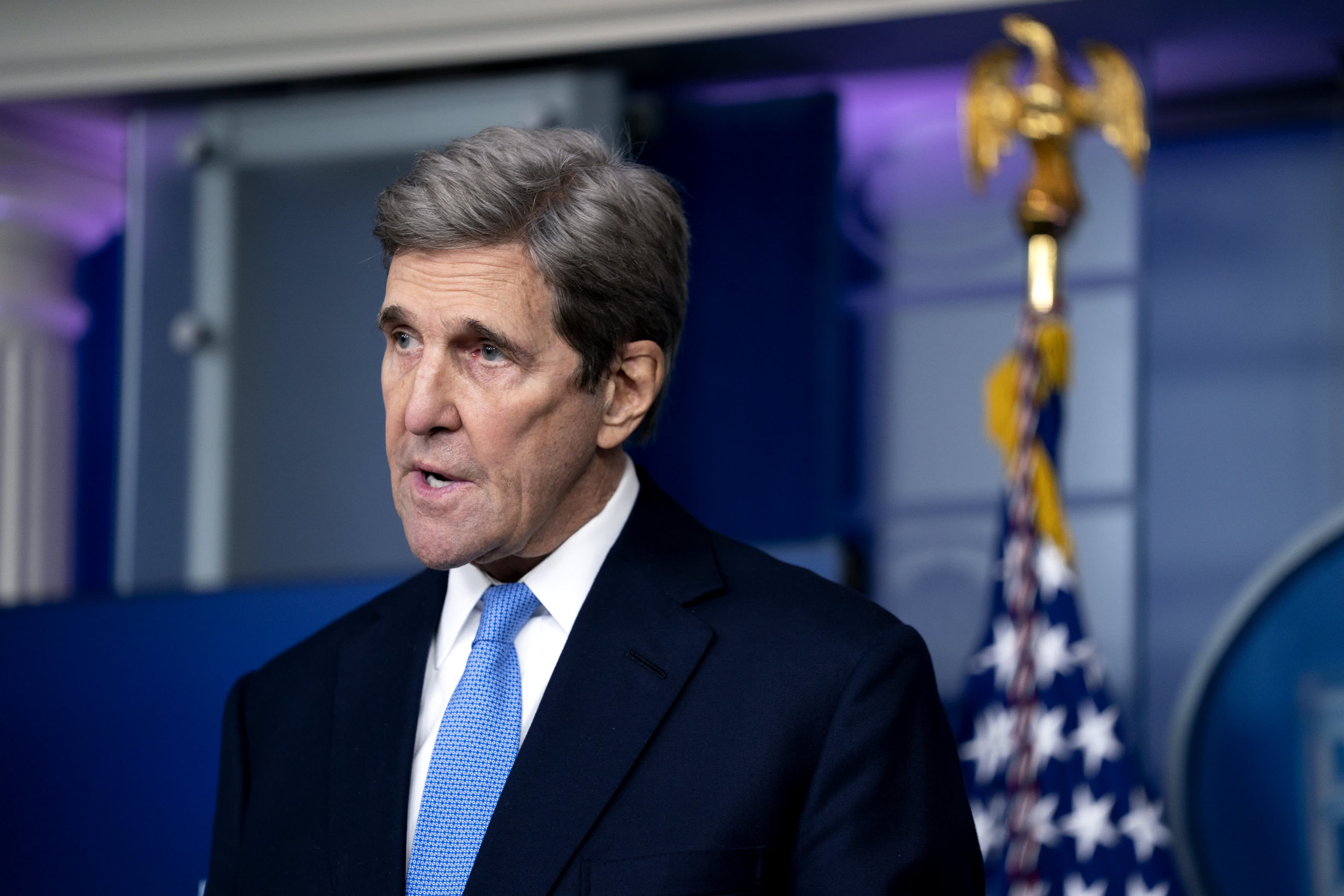No single country can solve the climate crisis — and the American pursuit of greater research and development on climate change is not a counter to China, the Biden administration’s climate envoy John Kerry told CNBC on Sunday.

“No one nation can solve this problem by itself — impossible. Each of us need everybody else at the table to make this happen,” Kerry told CNBC’s Hadley Gamble in Abu Dhabi after wrapping up the UAE’s Regional Climate Dialogue, during which he toured renewable energy facilities in the oil-rich Gulf state.
President Joe Biden has made tackling climate change a key priority of his administration. His clean energy measures — which include public funding for electric vehicles (EVs), millions of additional EV charging ports, and retrofitting buildings and homes — are aimed at achieving the long-term goal of net-zero emissions by 2050, the White House has said.
And his massive $2 trillion infrastructure proposal, if signed into law, would be one of America’s largest federal efforts ever to stem its greenhouse gas emissions.
The plan would see the U.S. invest $35 billion into clean technologies and spend $174 billion on overhauling the country’s EV market. But that still pales in comparison to what China has spent on clean energy research and development in recent years.
China’s R&D spending climbed 10.3% to $378 billion in 2020, outpacing the U.S., according to the China’s National Bureau of Statistics. China also accounts for around 30% of the world’s CO2 emissions, more than twice that of the U.S.
Asked if that concerns him, Kerry said it doesn’t.
“I think that this is a huge economic opportunity, not just for the United States with people all around the world,” he said. “This is not about China, this is not a counter to China. This is about China, the United States, India, Russia, Indonesia, Japan, Korea, Australia, a bunch of countries that are emitting a pretty sizable amount, the United States and China the most.”
Kerry added that the U.S. and China make up nearly 45% of all global emissions.
Adding Europe to the list accounts for half the global total. Europe has arguably made greater progress than either China or the United States at attempting to slow climate change.
“So three entities need to work together with a lot of other countries to be serious about reducing emissions, and to address this moment of history,” Kerry said.
The one area for cooperation?
“We will continue to need gas, certainly for a period of time, oil for a period in a transition,” Kerry added. “We have to transition [away from fossil fuels] here. Nobody can pretend that you can just wave a magic wand and boom, overnight, you’re going to suddenly have renewables everywhere.”
China and the U.S. remain at loggerheads over numerous issues — particularly on trade, human rights, intellectual property and technology.
One research director from Bank of America in early April spoke of a “climate war” between Washington and Beijing to follow rivalry around technology and trade.
The first high-level meeting between China and the U.S. under Biden’s presidency took place in Alaska in March. The meeting saw open belligerence to an extent that’s very rare among senior diplomats. But one area where the two countries urged cooperation was the climate.
[contextly_sidebar id=”9uklLcAnmi6kVnWEpuNkNh504E7kwD3d”]







